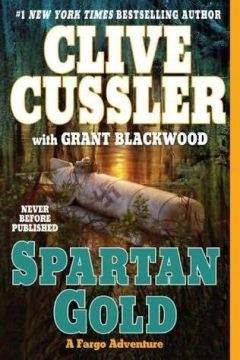“Any chance of taking him out?”
“Not unless I can levitate. His head’s on a swivel. I wouldn’t get halfway across the clearing before he heard me. I do, however, have an idea.” He explained.
“How far?” she asked.
“Sixty, seventy yards.”
“Over the stable roof, no less. It’s a long shot, if you’ll pardon the pun.”
They spent a few minutes rummaging around the trees until they had a pile of a half dozen golfball-sized stones. Sam picked up the first one, crab-walked to the edge of the clearing, waited for the guard to look away, then popped up and hurled the stone. It sailed in a high arc over the stable roof. Sam popped back down and scurried back.
Silence.
“Miss,” Remi whispered.
Sam grabbed another stone and repeated the process. Another miss. Then a third, and then a fourth. He picked up the fifth stone, shook it in his hand like a pair of dice, then held it before Remi’s lips. “For luck.” She rolled her eyes, but dutifully blew on the stone.
He crawled out, waited for his moment, then hurled the stone.
Two seconds passed.
From the parking lot came the sound of breaking glass, followed by the rhythmic honking of a car alarm.
“You sank someone’s battleship,” Remi said.
The alarm had an immediate and dramatic effect, starting with the guard at the stable door, who turned and sprinted toward the parking lot. Voices from other parts of the estate began shouting to one another.
Sam and Remi bolted for cover and sprinted for the wall, reaching it in under ten seconds. Bent at the waist now, they slid down its length to the corner. Ahead of them they saw five or six guards rush headlong across the party area and through the hedges.
“Go,” Sam rasped. They stepped out, around the corner, and through the door into the stables.
They weren’t two steps inside when a massive dark form rose up before them. Sam pushed Remi left then rolled right. The horse, a jet-black Arabian stallion standing at least sixteen hands high, reared up, its hooves clawing the air before Sam. It let out a deep-chested snort then slammed back to the ground, galloped down the alleyway, and disappeared into an open stall door.
Behind Sam the door opened. The guard saw Remi first and wheeled on her, his MP5 coming up. Before he could utter a word, Sam was there, driving a right cross into his temple. He stumbled sideways and fell to the ground. As Remi scooped up his gun, Sam closed the door and dropped the crossbar into place. Outside they could hear boots pounding on gravel.
“So much for a stealthy exit,” Sam muttered.
“At this point I’ll settle for any exit at all,” Remi replied.
They turned and sprinted for the tack room.
CHAPTER 42
They had just reached the entrance to the tack room when the pounding on the stable door began. Instinctively Sam and Remi spun, looking back. “How long, do you think?” she asked, then followed Sam into the closet. They knelt beside the trapdoor.
He said, “Thirty seconds before they start shooting, another thirty for them to smarten up and find something to slip into the jamb and pop up the latch. Two minutes, no more.”
“That plan you mentioned—”
“Sketch.”
“Whatever. Let’s hear it.”
He took ten seconds to explain. Remi said, “We could just make a run for it.”
“One big problem: If they’re faster than I give them credit for we’ll be caught on the cliff. They’ll pick us off like pigeons. My way we’ll at least have some cover and maybe even turn them back.”
“Good point. Okay.”
“I’ll handle the heavy stuff; you gather the supplies. If we do it right it should be enough to slow them down—maybe even turn them back.”
“Ever the optimist.”
Sam ducked back into the tack room, grabbed the desk chair, and carried it back into the closet. He closed the door and jammed the chair beneath the knob. Remi already had the trapdoor open and was climbing down. Sam followed and shut it behind him.
Guided by their flashlights, they set to work, Sam jogging back to the intersection, where he began manhandling ore carts away from their place along the wall and onto the tracks, while Remi ran down the tunnel toward the cliff entrance.
Distantly there came the chatter of automatic weapons fire.
“Good guess!” Remi called from the darkness.
“I was kind of hoping to be wrong—by three or four hours,” he replied, shoving a second cart into place. A minute later he had the third one seated on the tracks. Remi ran out of the darkness carrying a handful of oil lanterns. She hurled two or three into each cart, making sure they landed with enough force to start leaking oil into the bottoms of the carts.
The gunfire from above ceased. “They’re using their brains now,” Sam said.
Together they sprinted back down the tunnel, snatching lanterns as they went until they had a dozen more, then returned and tossed them into the ore carts.
“Kindling,” Remi said, and they took off again. They grabbed anything that would burn, from wooden toolboxes to boots and coveralls to coils of dry-rotted rope, then returned to the carts and divided the haul into three piles, which they dumped into the three carts.
“You feel that?” Remi asked.
Sam looked up and for the first time noticed a cool breeze blowing in from the cliff entrance. “That’s good luck for us.”
Using his Swiss Army knife he cut a trio of wicks from the coveralls, then knotted each one at the bottom and together they soaked the knotted ends in the oil at the bottom of the lead cart.
Remi asked, “Do we wait or—” From the direction of the tack room hatch there came the sound of pounding. “Forget I asked,” she finished.
Using his lighter Sam lit each of the three wicks as Remi held them. Once certain they were fully caught, she handed two to Sam, who tossed them into the first two carts. Remi tossed hers into the closest cart and they backed away.
Nothing happened.
“Come on . . . ,” Remi muttered.
“I was afraid of that. Oil might be too sludgy.”
Down the tunnel there came the sound of splintering wood, followed by a door banging open.
Sam stared at the carts, his jaw pulsing with anger. “Damn it!”
With a whoosh, one of the carts burst into flames and oily black smoke began gushing from the top. The second and third cart ignited and within seconds a thick cloud of smoke roiled near the ceiling. Pushed by the breeze, it began surging through the intersection and into the side tunnels.
Sam and Remi, coughing, eyes watering from the peripheral exposure, backed away from the carts. “If that doesn’t slow them down nothing will,” Sam said.
“Can we finally leave this party?” Remi asked.
“After you.”
They sprinted down the tunnel and skidded to a stop at the entrance. Outside, the fog had lifted and the erosion bridge was dimly lit by moonlight. Waves lapped and hissed at the cliff face. Despite the breeze, the smoke cloud was moving down the tunnel toward them and with it came the faint sounds of coughing and retching.
“When we reach the water, we’ll let the tide take us. It should be running north to south along the coast. Balaclava’s only about three miles down the coast. We’ll go ashore there.”
“Right.”
“Still have the printout?”
Remi patted her dress at the waistline. “Safe and sound.”
Sam eased up to the edge and peered down. A bullet smashed into the rock beside his head. He jerked back and they dropped flat.
Remi gasped. “What—”
“There’s a patrol boat down there,” Sam muttered. “They’re sitting right below the spikes.”
“We’re trapped.”
“Like hell we are. Come on.”
He pulled Remi to her feet and they began sprinting back down the tunnel. “Care to fill me in?” Remi said.
“No time. You’ll get it. Just stay on the tracks.”
With each step the smoke thickened until even their flashlight beams did them no good. Hand in hand, they kept running, heads down and eyes slitted against the fumes.
“Almost there,” Sam called and stretched his free hand before him.
The retching and coughing were louder now, seemingly all around them. A voice shouted something in Russian, followed by a rasped reply in English: “Back . . . go back . . . !”
Sam tripped and fell, taking Remi down with him. They got back to their feet and kept going. His groping hand bumped into something hot and he jerked it back. He dropped to his knees and pulled Remi down beside him. Somewhere close by, multiple boots crunched on gravel. A flashlight beam cut through the smoke, then disappeared.
“What’s going on?” Remi whispered.
In response, Sam gave the ore cart a quick rap with his knuckles. “Take off the coat.” She did so. Sam shoved his hands into the sleeves from the outside in, then twisted the body of the jacket into a ball. “Oven mitts,” he explained.
Now Remi caught on: “Depth charge?”
“You got it.”
“Clever boy.”
“Once I get it rolling, you push me from behind.”
“Okay.”
Hunched over, Sam moved around to the other side of the cart, planted his feet wide, then placed his gloved hands against the steel side and shoved. The cart didn’t budge. He tried again. Nothing. He heard a metallic click-click, then Remi’s whispered voice: “Wheel brake was on. Try again.”
Sam took a deep breath, set his jaw, and shoved. With a steel-on-steel shriek, the cart lurched forward. The crack of a gunshot echoed down the tunnel, but Sam ignored it and kept going. He passed Remi and she fell in behind him, hands pressed against his lower back. The cart quickly picked up speed. Pushed by the breeze, the flames and smoke streamed backward over their heads like a comet’s tail.
Suddenly the smoke thinned out. The tunnel entrance loomed before them, not twenty feet away. “Braking,” Sam shouted and leaned backward, digging his heels into the gravel ballast. Remi, her hands tight around his belt, did the same. Their combined weight began to slow the cart. The opening rushed toward them. Ten feet . . . five feet . . . Sam made a quick mental calculation, decided the momentum was right, then let go. They stumbled backward together, landed in a heap, and looked up just in time to see the flaming cart tip ever so gently over the lip of the entrance.
There were three seconds of silence, then a thunderous crash.
Sam and Remi crawled on hands and knees to the entrance and looked over the edge. Already half engulfed in flames, the patrol boat was listing heavily to port as water bubbled up through a crater in the afterdeck. After a few seconds a pair of heads bobbed to the surface; one began swimming away, but the other remained motionless. The boat dipped stern first below the surface and slid from view.
“I think that’s called a bull’s-eye,” Remi said, then dropped to her belly and let out an exhausted sigh. Sam did the same. Above their heads black smoke spewed from the tunnel and began drifting away through the bridge.
“Well,” Sam said, “I’d say we’ve thoroughly worn out our welcome. Shall we call it a night?”
“Yes, please.”
CHAPTER 43
MONACO
Yvette Fournier-Desmarais’s hazel eyes stared over the rim of her poised coffee cup as she listened intently to Sam recount their adventure on Elba. He’d left out any mention of Umberto’s near betrayal of them to Kholkov.
“After that,” Sam finished, “we drove to Nisporto, then made our way back to the mainland.”
“Amazing,” Yvette said. “You two certainly know how to live up to your reputations.”
It was early morning and the three of them sat on the patio of Yvette’s villa overlooking Point de la Veille. The sun sparkled off the flat calm waters of the Mediterranean.
After watching Bondaruk’s patrol boat sink into the depths below the erosion bridge Sam and Remi had climbed down the spike ladder and slipped into the water. They found a pair of orange kapok life jackets that had escaped the boat’s demise, latched on to them, and let the current carry them south along the coast. As the sun rose over the horizon they drifted along, watching plumes of black smoke gather over Bondaruk’s estate and listening as the sirens of the fire engines grew louder. Several times to the north they saw more Bondaruk patrol boats, but the crews focused their attention on the cliffs beneath the estate.
An hour after they went into the water they found themselves off the beaches north of Balaclava and they paddled ashore and made their way into town, and two hours after their phone call to Selma they were sitting in the back of a limousine and on their way to Kerch, a hundred miles up the coast on the Sea of Azov. Waiting there was a courier who upon Selma’s orders had gathered their passports, credit cards, and luggage from their hotel in Yevpatoria. An hour after that they were aboard a private charter headed for Istanbul.
Knowing they were in a holding pattern until Selma could decipher the printout they’d stolen from Bondaruk’s lab, and knowing they needed a safe place to regroup, they’d called Yvette, who’d happily and immediately dispatched Langdon, her ex-SAS bodyguard, aboard her Gulfstream to collect them.
“Well, in all fairness I have to tell you: Umberto confessed everything,” Yvette now said. “He was quite ashamed of himself.”
“He redeemed himself,” Remi said. “In spades.”
“I agree. I told him that if the Fargos forgave, so did I.”
Sam asked, “I’m curious: What happened to Carmine Bianco?”
“Who?”
“The Corsican mobster-slash-Elban cop.”
“Ah, him . . . I believe he’s now the guest of the Italian government. Something about attempted murder.”
Sam and Remi laughed.
“So,” Yvette said, “Laurent’s diary is proving helpful?”
“And a challenge,” Remi replied. “The code he used is complex and layered, but if anyone can puzzle it out, it’s Selma.” As soon as they’d arrived at the villa they faxed the printout to Selma.
Langdon appeared with a fresh carafe of coffee and refilled everyone’s cups. Sam asked, “So, Langdon, what’s the answer?”
“Pardon me, sir?”
“Did she have the good sense to say yes?”
Langdon cleared his throat and pursed his lips.
Yvette said, “Oh, for goodness’ sake, Langdon . . .” To Sam and Remi: “He’s so reserved, so proper. Langdon, you’re allowed to share good news, you know. Go on, tell them.”
Langdon allowed his mouth to form the barest of smiles and said, “Yes, sir, she agreed to marry me.”
“Congratulations.”
Remi raised her coffee cup. “To the groom to be.”





